Environmental Integration on ...
Online Conference
10 Apr 2025 / 12 Apr 2025 read more

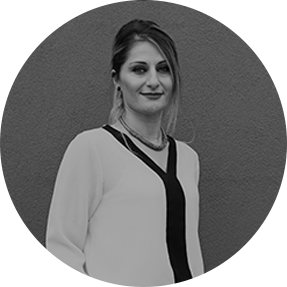
Ph.D. Etleva Dobjani
Head of the Department of Architecture and Lecturer at the Faculty of Applied Sciences and Creative Industries, Barleti University, Albania
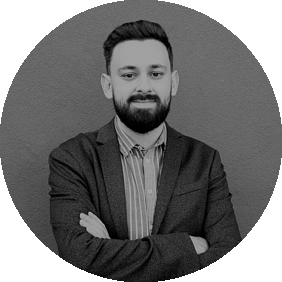
Ph.D. Gerdi Papa
Lecturer and head of the department of Creative Industries at the Faculty of Applied Sciences and Creative Industries , Barleti University, Albania
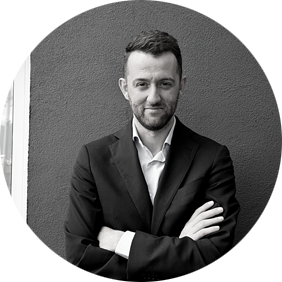
Ph.D. Saimir Shtylla
Lecturer in the Department of Creative Industries , Barleti University, Albania
Sara Youssef
Conference Coordinator
[email protected]
(+20) 3 5763827 | (+20) 3 5763828
(+20)1000028021
Subscribe to our newsletter
Urban regeneration is the rehabilitation of land areas that are subject to high-density urban land use. It is a strategy that aims to transform and renovate areas to be upgraded in housing, public and private buildings, infrastructure, and services. This entire process is an effective way to improve urban performance by targeting areas with high rates of poverty, pollution, and congestion, leading to a complete economic and regional development of the area. Urban regeneration programs are only proven successful when sustained.
As a result of its successes, urban regeneration is now known as the attempt to reverse declining cities. It does so by improving physical structures through new urbanization models and methods and by working to enhance the economy of those cities. These new urbanization models and methods must be highly enduring systems that prove sustainability, which is reached by covering all aspects of the four interconnected domains which include ecology, economics, politics, and culture.
Today, the process of urbanization continues to generate many problems deriving from the constant migration of more populations towards already highly populated cities. Resolving these issues is possible by turning them into efficient habitats, saving resources in a way that improves the standard of living. The process, however, faces a number of major challenges related to reducing pollution, improving main transportation and infrastructure systems. New urban solutions are required to optimize the use of space and energy resources leading to improvements in the environment, i.e. reduction in air, water, and soil pollution as well as efficient ways to deal with waste generation. These challenges contribute to the development of social and economic disproportions and require the development of new solutions.
The level of difficulty of managing such problems with found solutions in several cities differs from one city to the other depending on several variables which mainly include the size of said cities. However, despite such complexity, they offer a generative ground for architects, engineers, city planners, social and political scientists, and other professionals the ability to conceive new ideas and time them according to technological advances and human requirements.
IEREK invites you to join the next third edition of the International Conference on "Urban Regeneration and Sustainability (URS)" We believe that it is our duty and responsibility to offer the space and opportunity to discuss and present solutions and scientific theories in the presence of reputed professors specified in the field.
Including but not limited to
1.1. Urban Regeneration: Definition, Purpose, and Evolution
1.2. The Role of Urban Design in Cultural Regeneration
1.3. Principles of Urban Sustainability, Ecology, and Resilience
1.4. Planning of Mixed Land Use
1.5. Living Standards: Urban Sprawl, and Slum Areas
2.1. The Art of Sustainable Urban Design Paradigm
2.2. Sustainable Urban Design for Waterfront Development
2.3. Neighborhoods, Housing, and Economic Development
2.4. Production and Regeneration in Regional Development
2.5. The Impact of New Urbanism Models: Planning and Design Strategies to Improve Urban Performance
2.6. Strategy for Evolving Public Spaces
2.7. Transportation Planning, Safety, and Traffic Modeling
2.8. New Urbanism Models Planning and Designing
2.9. Industrial Area Agglomeration and Corporate Strategy
2.10. Management and Conservation of Energy Resources Overview of Urban Transformation
2.11. Compact Cities: Issues and Solutions
2.12. Transformation to Sustainable City
2.13. Livable Communities: Cities for People
2.14. Environmental Efficiency for Better Life
2.15. Public Involvement in Sustainable Development
2.16. New ways for learning
2.17. Innovation in Education
3.1. Urban Renewal: Issues and Challenges
3.2. Pollution of Urban Heat Island (UHI)
3.3. Climate Change and Sustainable Landscapes
3.4. Green Infrastructure: Building and Designing with Nature
3.5. Urbanization and Urban Poverty: Effects, Awareness, and Solutions
Computational Design for Urban Regeneration
3.6. Digital Tools in Urban Regeneration
3.7. Optimization and Decision-making tools for Urban Regeneration
3.8. Data informed Urban Regeneration
4.1. The role of historic buildings in regeneration process
4.2. Urban regeneration and sustainability
4.3. Adaptive Reuse of existing buildings
4.4. The role of technology in the co-living spaces
5.1. City Branding, Urban Planning and Urban Regeneration
5.2. Urban Branding and Sustainability
5.3. Urban Competitiveness and Urban Marketing
5.4. Urban Planning and Tourism
5.5. Resident Satisfaction and Urban Regeneration
All accepted submissions to the conference, after a rigorous double-blinded peer-review process by the respective and a highly-extinguished Editorial Board, will be published in one of the following:
 Advances in Science, Technology and Innovation (ASTI), an IEREK Interdisciplinary book series published by Springer Nature. (Scopus indexed)
Advances in Science, Technology and Innovation (ASTI), an IEREK Interdisciplinary book series published by Springer Nature. (Scopus indexed) About ASTI
Advances in Science, Technology & Innovation (ASTI) is a series of peer-reviewed books based on important emerging research that redefines the current disciplinary boundaries in science, technology and innovation (STI) in order to develop integrated concepts for sustainable development. It not only discusses the progress made towards securing more resources, allocating smarter solutions, and rebalancing the relationship between nature and people, but also provides in-depth insights from comprehensive research that addresses the 17 sustainable development goals (SDGs) as set out by the UN for 2030.
The series draws on the best research papers from various IEREK and other international conferences to promote the creation and development of viable solutions for a sustainable future and a positive societal transformation with the help of integrated and innovative science-based approaches. Including interdisciplinary contributions, it presents innovative approaches and highlights how they can best support both economic and sustainable development, through better use of data, more effective institutions, and global, local and individual action, for the welfare of all societies. The series particularly features conceptual and empirical contributions from various interrelated fields of science, technology and innovation, with an emphasis on digital transformation, that focus on providing practical solutions to ensure food, water and energy security to achieve the SDGs. It also presents new case studies offering concrete examples of how to resolve sustainable urbanization and environmental issues in different regions of the world. Read More.
The ASTI series is fully indexed in Scopus and any chapter/ paper published as part of this series will be seen on the Scopus database. Some titles have been successfully indexed or submitted for indexation in Web of Science (ISI).
 IEREK Press Journals, a multidisciplinary publisher that aims to cultivate and disseminate research.
IEREK Press Journals, a multidisciplinary publisher that aims to cultivate and disseminate research.
ESSD is a peer-reviewed, scholarly journal that aims to systematically develop the research-driven curiosity and evidence-based discourse of aspiring scholars that seek to contribute to the academic community. As the world is currently living in an age of information where sources are widely available on the Internet, we at ESSD seek to efficiently utilize the available information to help create robust and evidence-based knowledge. In the process, we offer researchers, in general, and young and aspiring ones in particular a quicker way to get their work published and gain exposure through online open access. We pride ourselves on getting submitted work to be published quickly, through the use of our worldwide pool of subject specialist peer reviewers. Find out more about ESSD International Journal here.

ARChive is an open-access journal that publishes conference proceedings on a wide range of topics relating to social sciences. Consequently, it accepts original research papers on a wide spectrum of subjects. ARChive is a journal published on behalf of researchers that perpetually make an effort to contribute to their fields and provide them with high visibility of research submitted. The series publishes, both, theoretical and experimental high-quality papers of current and perpetual interest. It serves to cultivate, propagate, and essentially archive academic research that has been authored and submitted for academic conferences.
Find out more about ARChive International Journal here.

Resourceedings is an open access journal that publishes conference proceedings. Conference proceedings compromise of different disciplines, ranging from Engineering including built environments, architecture, and sustainability. Disciplines also include Technology and Energy. Resourceedings is a journal that publishes research articles that shed light on different crucial issues in order to provide them with solutions and suggestions. The journal publishes articles submitted by researchers of interest in different fields.
Find out more about Resourceedings International Journal here.
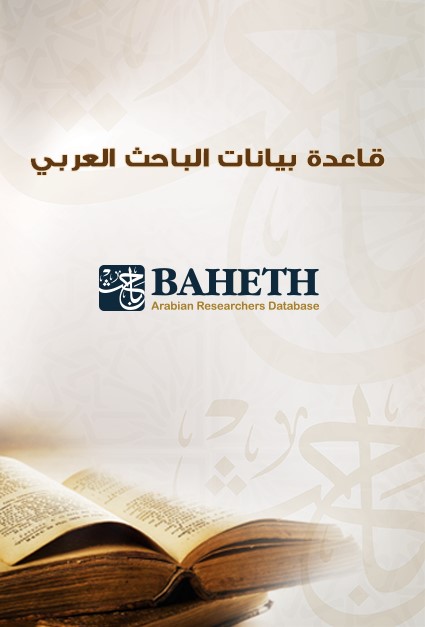
“BAHETH” in Architecture, Engineering, and Technology, is a peer-reviewed journal that publishes original academic research in the fields of Architecture, Engineering, and Technology. The journal welcomes research in the Arabic Language with an English Abstract. Papers submitted to this journal in Arabic must be presented in the English Language in the conference.
Find out more about BAHETH International Journal here.


Born in Umbertide (Perugia), Italy, in 1988. Master's degree in Building Engineering - Architecture at University of Perugia, Italy, in 2014. Ph.D. in Energy and Sustainable development at CIRIAF - University of Perugia, Italy, in 2018. Research Fellow at CIRIAF - Interuniversity Research Centre on Pollution and Environment “Mauro Felli”, Department of Engineering, University of Perugia, Italy, as member of the EAP Lab (Environmental Applied Physics Laboratory) team, dealing with building energy efficiency and, specifically, dynamic analysis of building energy performance, occupant behavior, human comfort in the built environment, urban heat island mitigation, and energy systems. More details on https://www.eaplab.eu/.
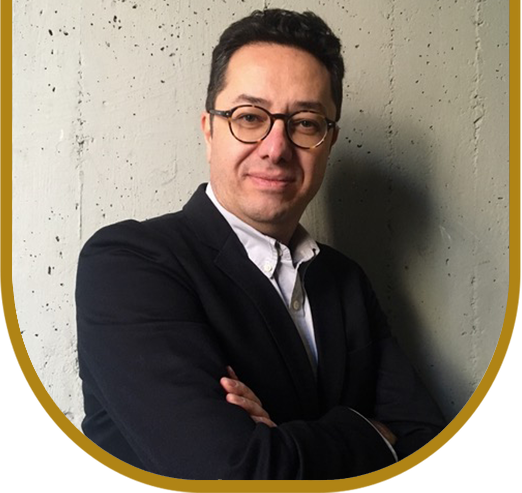
Dr. Balaban is an urban planner and currently Professor of Urban Planning at Middle East Technical University (METU) in Ankara, Turkey. He holds a Ph.D. in City Planning from METU (2008) and worked as a postdoctoral researcher at United Nations University-Institute of Advanced Studies (UNU-IAS) in Yokohama, Japan between 2009 and 2012. He has participated in various research projects at international and national levels that focused on such topics as climate change, climate adaptation, co-benefits approach, urban sustainability, urban regeneration and local governments. Dr. Balaban has published several research papers in peer-reviewed journals, chapters in edited books as well as research and expert reports. He is currently the Editor of the METU Journal of the Faculty of Architecture and the Editorial Board Member of the npj Urban Sustainability and the Journal of Planning Literature.
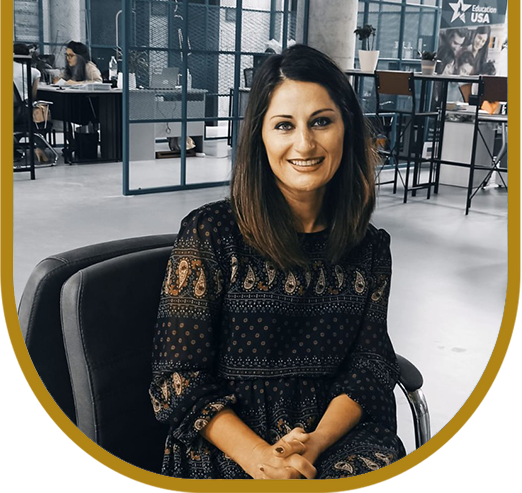
PHD. Etleva Dobjani, is an architect and urban designer. At the same time, she is part of ArkiLab, assistant of the Creative Europe [Temporaneity] project, as well as organizer of the ""Smart City"" forum. Among the engagements within the department, are also pursuing MSc degrees. Architecture and coordination of Erasmus + projects at department level. He graduated from the Faculty of Architecture at the Polytechnic University of Turin in Italy in 2008. In 2011, he completed his master's degree in ""Urban Design and Landscape"" at POLIS University in collaboration with Erasmus University Rotterdam, the Netherlands. In 2016, she received the title ""Doctor of Science"" at La Sapienza University in Rome (Italy), in the department ""Architecture, Theory and Project"" with the topic ""Quality of living space in Tirana. Analysis and critical evaluation of living space in the postdictatorial period in Tirana. New strategies for sustainable development. "" From 2008, for several years she has worked in the Metropolis architecture studio in Tirana, but has also developed her activity as a freelance professional and energy auditor in Albania. With a contribution of 13 years in the academic field as a lecturer at POLIS University she has been engaged in several national and international research projects.
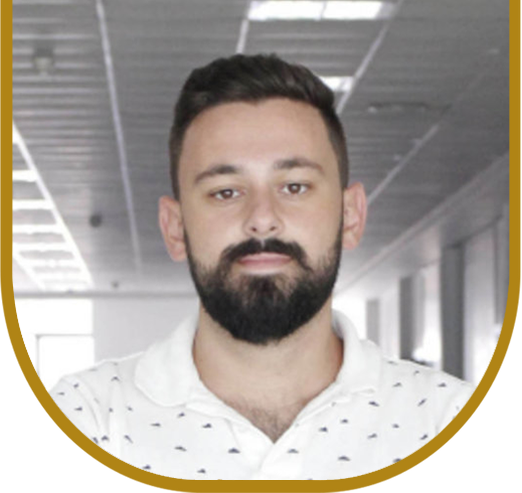
Gerdi is an architect who is passionate about computational and algorithmic design topics as well as digital fabrication. His first steps in the computational design field are taken as his high school education is focused on electronics. He finishes his master studies in Architecture and Urban Design at Polis University in 2014 where he deals with a thesis in Interactive Architecture. His main fields of interest from that point on focus on the digital aspects of designing architecture with a professional master in Parametric Design finished at Polis University in 2016. During this time, he also practiced as an assistant lecturer at Polis University in the corses of Information Architecture as well as Computer Aided Design. He started his PhD studies in the joint doctorate program between Polis University and Ferrara in 2016-2017 where he is now developing a thesis on Digital Fabrication and Emergency Shelters.

PhD. Ark. Saimir Kristo is an architect and urban designer. He is also part of Maker Space - ArkiLAB, Creative Europe projects (LINA and Temporaneity), coordinator of Erasmus + projects at the Faculty level and open forums. Other commitments include pursuing MSc Architecture degrees. He graduated from POLIS University in 2011 in the MSc program in Architecture and Urban Design and completed his studies in the MSc Applied Design in 2013. He has been engaged in a series of activities in the field of art, design and architecture, as well as in the role of curator of the Architecture Week in Tirana 2014 entitled ""[For] Imaging the Cities of the Future""; Design Week in Tirana 2015 (Design NOW!) Until the selection as European Young Curator at the ""CEI Venice Forum for Contemporary Art Curators"" in 2019. Continuing his professional and academic engagements, he completes his doctoral studies in the joint program of POLIS University (Albania) and the University of Ferrara (Italy) focused on ""Urban Catalysts"" and creative ways of interaction in public space, based on the accumulated experience as leaders in Urban and Development Regulatory Plans in Albania.
The 3rd edition of the International Conference on Urban Regeneration and Sustainability (URS) will be held in collaboration with Barleti University, Rruga Frang Bardhi, Tirana, Albania.
Hall: Forum Theater, Ground Floor.
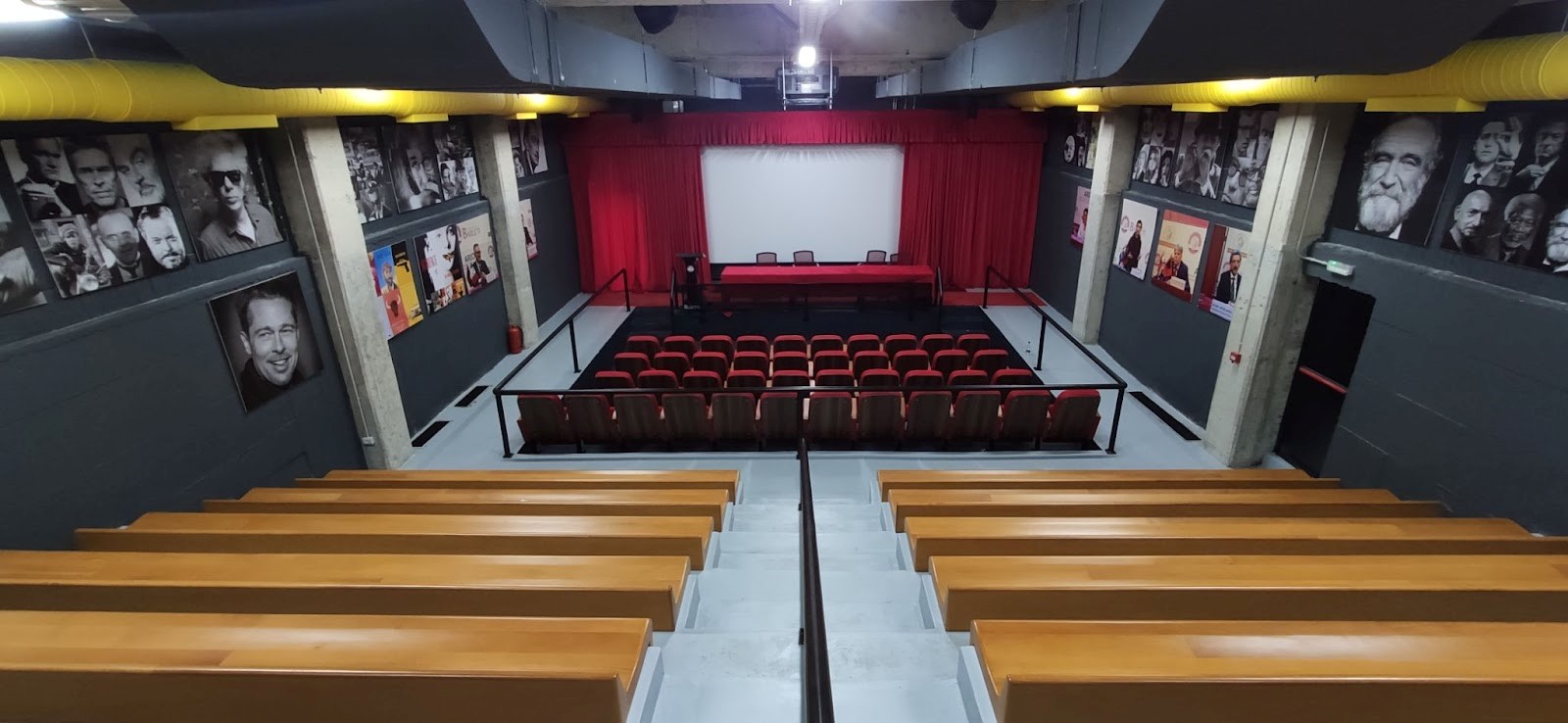
please download the map from here: https://we.tl/t-6cp9J2eFI7
Registration
To help the organizers plan for inter-disciplinary dialogue, participants are requested to choose from the conference themes/ Topics upon registration.
They must also refer to, and abide by, the following instructions in registering and submitting their abstracts/ papers:
Types of Participation
Organized from the comfort of your own home, the conference offers a virtual attendance option for your convenience. That said, participants will have a chance to present their abstract/research, online, and have their work considered for publication in the proceedings.
Virtual presenters are required to submit an abstract and extend this abstract following the “author instructions” below and before the deadline (see Important Dates). At least one author must pay the registration fee (see Conference Fees).
For any reason, authors may wish to submit pre-recorded video presentations no later than 15 days prior to the conference. Alternatively, they may wish to record a voice-over PowerPoint presentation for submission to the conference organizers.
Organized at Barleti University, Albania, offering a Physical attendance option for your convenience. That said, participants will have a chance to present their research, at Barleti University, and have their work considered for publication in the ASTI Series by Springer as part of the conference proceedings.
See Author Instructions and Conference Fees for more information.
If your Full paper is accepted, it may be published in the conference proceedings book in the Advances in Science, Technology & Innovation Book Series by Springer (indexed in Scopus) even if you are not attending the conference. In this case, the accepted work will not be included in the final conference program and the fee will cover the cost of editorial handling and peer-review evaluation of your paper (See Author Instructions and Publishing Opportunities)
Non-presenting participants may also wish to attend the conference as Audience Members or Co-authors contributing to an already submitted abstract/ paper.
Important Note:
IEREK has an unyielding policy regarding plagiarism. We believe that copying/taking the ideas and work of other Authors without permission and credit is fraudulent. The Reviewing committee and IEREK employees have the authority to reject a paper during its reviewing process, on the basis of the paper being subjected to either minor or major plagiarism.
Authors must refer to, and abide by, the following instructions in submitting their abstracts/ papers:
Step 1: Abstract Submission Process
To download the Abstract Writing Template, Click Here
All Chapters will be screened for similarity using iThenticate; a Turnitin Plagiarism detection software, used for academic publishers. Springer Similarity guidelines are as follows:
To download Paper Writing Template, Click Here
Once Preliminary approval for presentation at the conference and/or consideration for publication is granted, authors will be expected to complete payment in reference to the Conference Fees before the peer review process can begin.
Note:
In preliminary evaluation, the research paper will be inspected against its readability, originality, structure, and relevance to the conference theme/ topics. If the paper gets acceptance by one reviewer, a preliminary acceptance notification will be sent to the author in addition to a proforma invoice requesting payment. As soon as payment is confirmed and done successfully, corresponding official documents can be issued from our end such as:
Only after payment is confirmed,
- and the full paper submission deadline reached, a submitted full-length paper is assigned to an Editor from the Editorial Board, in alignment with IEREK’s and the respective publisher’s revision SOP (double-blind process).
- Each paper is evaluated by a minimum of two reviewers, after which a final decision by the responsible Editor is made. There is no maximum to the number of times a paper can be reviewed, depending on the quality of the submission.
- Once a decision is made by the Editors, IEREK Editors will communicate one of the following three final decisions:
- If modifications are in order, authors will be sent the relevant instructions and a deadline will be set. Missed deadlines may result in complete exclusion/ rejection from the final publication.
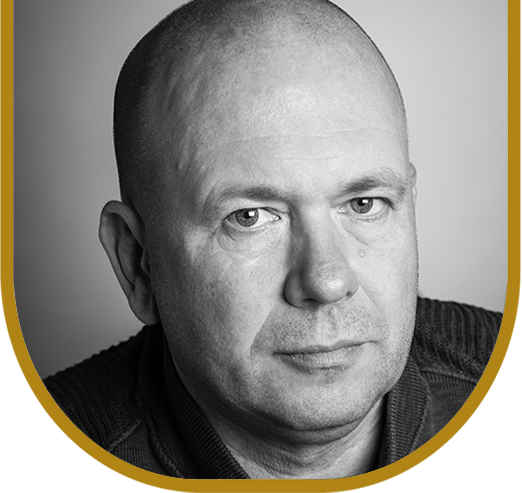
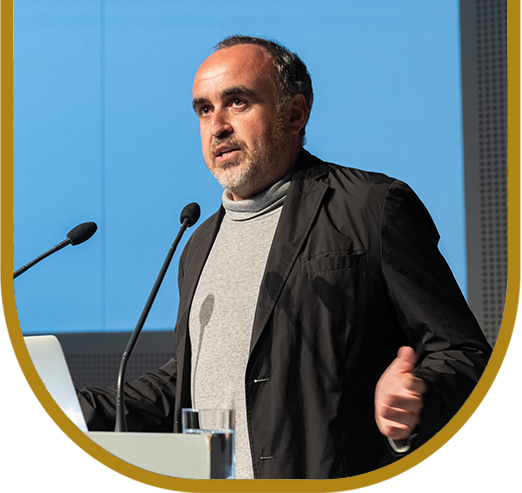
Ivan Blasi is an architecture curator, moderator, teacher and publisher. He is the director of programs and prizes at the Mies van der Rohe Foundation in Barcelona where he is in charge of the organization of the European Union Prize for Contemporary Architecture – Mies van der Rohe Awards, and of the Interventions program in the Barcelona Pavilion. He teaches at the Barcelona Architecture Centre and has been invited to KU Leuven, TU Delft, Georgia Tech, Texas AM and Montevideo among others. Aside from regularly contributing to international architecture events, he has leaded the publication of about 20 books on contemporary architecture and culture published by Fundació Mies van der Rohe, and the curatorship of exhibitions which have been presented in La Biennale di Venezia, German Architecture Museum, Architekturzentrum Wien, Tbilisi Biennial, and La cité de l’architecture et du patrimoine in Paris among others. Among the interventions in the Barcelona Pavilion that he has organized there have been artists such as SANAA, Ai Weiwei, Muntadas, Luftwerk-Iker Gil, Andrés Jaque, Luis Martínez Santamaría, Laura Martinez de Guereñu, Sabine Marcelis and Anna & Eugeni Bach.
Albania is located in the heart of the Mediterranean and lies alongside the Adriatic and Ionian Seas. The country is one of the most interesting tourism destinations in the region. A country explored by very few people, Albania is an exciting place to visit. Its increasing number of visitors can find here an inspiring blend of civilizations and cultures that make this European country attractive for tourists.
The country has a beautiful, mostly sandy, coastline stretching along the Adriatic Sea from the Montenegrin border south to the Bay of Vlora. From here southwards the coast is rugged, with rocky coves characteristic of a narrow coastal strip that rests against a dramatic backdrop of steeply rising tall mountains.
Albania’s numerous mountains and rivers offer many possibilities for sports tourism, including many outdoor activities—parasailing, climbing, hiking, canoeing, cycling, swimming, diving—as well as for simply enjoying the beauty of nature.
The country’s history and culture is fascinating. Several Albanian cities retain an appearance that has changed little over many generations and that conserve in their midst remains that date back more than two thousand years. Numerous archeological sites make the country very attractive for special interest tourism.
Visiting Albania’s capital will delve into the past and present of a country that has seen intense turmoil since it was founded in the 1600s. Tirana has disintegrating soviet-era buildings, brand new projects and proud historic monuments side-by-side, while the wonderful upland scenery that bounds the city to the east calls for exploration.
Petrela
Petrela is a village some 15 km (9.3 miles) south of Tirana that is famous for its castle and history. The Petrela castle is built upon a huge stone located on the top of a small mountain. Once here you’ll have the chance to admire gorgeous natural panoramas and try traditional Albanian food in the restaurant situated inside the castle.

Dajti Ekspres
This cable-car is a fun family day out and a superb introduction to the city, taking you up by gondola to the dramatic mountain on Tirana’s eastern edge. The cable-car spans a kilometre, making it the longest in the Balkans, and rises more than 800 metres up the mountainside. The journey will take about 15 minutes and at the top, there’s a tourism complex with restaurants and hotels. Of course the view over the city will be memorable, but there are also year-round activities on the table, including trekking and horseback riding in summer, and skiing in winter.

National Historic Museum
Tirana and Albania have a very complicated past. So if you need a point of entry this is the place to get some context. The museum is organised by pavilions, each covering a different period in the region’s history, from ancient times up to the 21st century. The most valuable in terms of archaeological wealth is the Pavilion of Antiquity, where there’s a great collection of almost 600 items spanning the late Palaeolithic to the Early-Middle Ages.

Cave of Pellumbas
If you need to see more of the Mount Dajtit National Park that looms to the east of the city, spend a day around the village of Pellumbas. Here you can take hikes and scramble your way up to a beautiful natural monument. There’s a trail from the village that meanders through the mountains for two kilometres before you get to a cave packed with stalagmites and stalactites, but also with evidence of human activity going back than 300,000 years. It descends 350 metres into the mountainside, and during the Second World War made a refuge for the villagers of Pellumbas.

Durrës
Sometimes you need a break from city life. The good news is that there are plenty of great places to visit within a half-hour drive from Albania’s capital. Whether you love nature, enjoy visiting ancient towns, or want to know more about local culture.
There are buses every half an hour to this Adriatic port city, which is replete with Roman and Byzantine heritage. The first place to go is the amphitheatre, which is from the 2nd century, was once able to seat 20,000 and is the largest in the Balkan region. It was hidden to the world for more than a millennium before being rediscovered in 1900. What really adds to the site is the small chapel attached to the building, which has fantastic Early-Christian mosaics and frescoes depicting saints.

Attending a conference dramatically enhances both your professional and personal development. They help you sharpen the saw, meet and converse with industry experts, expand your resources and grow your professional network. IEREK Conference will help you:
| Title | Date |
|---|---|
| Abstract Submissions Deadline | 31 Aug 2022 |
| Last Notification for Abstract Acceptance | 01 Sep 2022 |
| Full Paper Submission Deadline | 01 Oct 2022 |
| Last Notification for Full-Paper Acceptance | 12 Nov 2022 |
| Early Payment Deadline | 15 Sep 2022 |
| Regular Payment Deadline | 15 Oct 2022 |
| Late Payment Deadline | 12 Nov 2022 |
| Letter of Visa (for delegates who need visa entry) | 12 Oct 2022 |
| Letter of Final Acceptance | 12 Oct 2022 |
| Conference Program | 12 Nov 2022 |
| Conference Launch | 12 Dec 2022 |
Local Scientific Committee
Prof. Dr. Suzana Guxholli, Rector of Barleti University
Prof. Dr. Artan Shyti, Vice Rector for Student Affairs
Prof. Asoc. Semiha Loca, Vice Rector for Academic Affairs
Prof. Asoc. Zamira Cavo, Dean of Faculty of Economics, Governance and Law
Prof. Assoc. Dr Robert Gjedia, Head of Department of Educational Sciences & Professional Training
Prof. Assoc. Dr Erika Melonashi, Head of Department of Behavioral and Health Sciences
Ph.D. Kejda Nuhu, Institutional Coordinator for Research and Development
Dr. Rezart Prifti, Head of Department of Economics, Entrepreneurship and Finance
Dr. Florina Pazari, Head of Department of Tourism, Hospitality and Recreation
Dr. Teuta Cerpja, Lecturer, Department. of Economics, Entrepreneurship and Finance
Dr. Erion Kristo, Lecturer, Department of Governance, Political Science and Communication
Ph.D. Saimir Kristo, Deputy Dean Faculty of Applied Sciences and Creative Industries,
Prof. Dr. Armand Vokshi, Dean of the Faculty of Architecture and Urbanism, Polytechnic University of Tirana.
Prof. Asoc. Gjergji Islami, Associate Professor in the Polytechnic University of Tirana.
Prof. Asoc. Denana Veizaj, Associate Professor at the Polytechnic University of Tirana.
Dr. Juljan Veleshnja, Polytechnic University of Tirana.
Dr. Entela Daci, Polytechnic University of Tirana.
Ph.D. Etleva Dobjani, Head of the Department of Architecture and Lecturer at the Faculty of Applied Sciences and Creative Industries
Ph.D. Gerdi Papa, Lecturer, Department of Creative Industries
Ph.D. Saimir Shtylla, Lecturer in the Department of Creative Industries
Prof. Dr. Ismail Kocayusufoglu
Prof. Dr. Florian Nepravishta, Faculty of Architecture and Urbanism, Polytechnic University of Tirana.
Organizational Committee
Olta Murataj, Lecturer, Department of Educational Sciences & Professional Training
Eurona Leka, Lecturer, Department of Governance, Political Science and Communication
| Student | Academic | Professional | Deadline | |
| *ID must be shown | *Affiliation must be provided | *Affiliation must be provided | ||
| Author Participation (Consideration in the ASTI Book by Springer) | ||||
| Early Bird | 300 € | 350 € | 400 € | 15 Sep 2022 |
| Regular Payment | 350 € | 400 € | 500 € | 15 Oct 2022 |
| Late Payment | 450 € | 500 € | 600 € | 12 Nov 2022 |
| Author Participation (Consideration in the IEREK Press Journal) | ||||
| Early Bird | 200 € | 250 € | 300 € | 15 Sep 2022 |
| Regular Payment | 250 € | 300 € | 400 € | 15 Oct 2022 |
| Late Payment | 350 € | 400 € | 500 € | 12 Nov 2022 |
| Co-author/ Audience | ||||
| Regular Payment | 150 € | 200 € | 250 € | 15 Oct 2022 |
Registration Guidelines:
| Student | Academic | Professional | Deadline | |
| *ID must be shown | *Affiliation must be provided | *Affiliation must be provided | ||
| Author Participation (Consideration in the ASTI Book by Springer) | ||||
| Regular Payment | 200 € | 250 € | 250 € | 15 Oct 2022 |
| Late Payment | 300 € | 350 € | 350 € | 12 Nov 2022 |
| Author Participation (Consideration in the IEREK Press Journal) | ||||
| Regular Payment | 100 € | 150 € | 150 € | 15 Oct 2022 |
| Late Payment | 200 € | 250 € | 250 € | 12 Nov 2022 |
| Co-author/ Audience | ||||
| Regular Payment | 50 € | 50 € | 50 € | 15 Oct 2022 |
| Presentation Only | ||
| Physical | 200 € | 15 Oct 2022 |
| Online | 100 € | 15 Oct 2022 |
| Publish Only | ||
| Author (ASTI) | 250 € | 15 Oct 2022 |
| Author (IEREK Press) | 150 € | 15 Oct 2022 |
| Additional Conference Kit (Excluding Delivery) *Contact us for a quotation on shipping fees. | 100 € |
| If applicable: Paper Extension fees for publishing ASTI (Springer) upon selection | 200 € |
Loyalty Membership Discounts
The more you attend, the more you're rewarded!
IEREK offers its loyal participants with the following discounts depending on his/her attendance:
|
Attendance |
Second |
Third |
Fourth |
Fifth |
|
Discount |
5% |
10% |
15% |
20% |
*The aforementioned discounts are only applicable during Regular and Late Payment times. For more information, please refer to 'Important Dates'.
Payment Terms and Guidelines:
Urban Regeneration and Sustainability (URS) 1st Edition
The 1st Edition of the Urban Regeneration & Sustainability conference was held in one of IEREK's partner universities: The University of East London, the Docklands Campus. It was chaired by Professor Hassan Abdalla; the Dean of the School of Architecture, Computing and Engineering of UEL.
Each Day was initiated with a keynote speech delivered by speakers on the topics of the conferences as per the scheduled sessions and their respective titles.
Day 1:
A Full day visit to the Metropolitan Borough of Woolwich to experience the area and get a glimpse of the different developments undertaken.
Day 2:
The second day of conference started with a welcoming word by Professor Hassan Abdalla and a brief overview of the conference topics to be discussed, the expected outcome and current and future work. Following his speech, Dr. Fulvio Wirz, MA Programme leader at UEL and Associate at Zaha Hadid Architects, took over the podium to introduce the conference. The session was then wrapped up by a speech from IEREK's Chief Executive Officer and founder, Dr. Mourad Amer and a presentation on the company, its aims & goals and events overtime, which was delivered by its General Director, Dr. Abdelaziz Sakr.

Day 3:
The third day of the conference started with a speech of the keynote speaker Professor Gabriele Sorrento “CEO and Founder of Mindesk: a VR-based design platform”.
After the keynote speech, authors (researchers) started to present a demo of their research paper in oral presentations while session chairman and moderators listen, discuss, and evaluate.
Following that, starting the speech of the keynote speaker Professor Hocine Bougdah “Reader in Architectural Technology in Canterbury School of Architecture”.

Check this conference’s overview here:
https://www.ierek.com/events/urban-regeneration-sustainability-2#overview
Urban Regeneration and Sustainability (URS) 2nd Edition
The 2nd International conference on the Urban Regeneration and Sustainability has been successfully held online in collaboration with University of East London.
The conference addressed all the aspects of the urban environment. Urban regeneration was discussed thoroughly in the conference by rendering it as a process and a strategy that aims at transforming and renovating areas in the hope of upgrading public housing, public and private buildings, infrastructure, and services.
Day 1:
The first day of the conference started with Short welcoming speeches were given by the conference chair Professor Hassan Abdalla, Dean of School of Architecture, Computing and Engineering, University of East London, UK, and the conference co-chair, Dr. Fulvio Wirz, UEL School of Architecture, and Zaha Hadid Architects Associate, UK. After the Opening Ceremony, authors (researchers) started to present a demo of their research paper in oral presentations while session chairman and moderators listen, discuss, and evaluate. After the short break was the speech of the special Keynote Speaker Amit Gupta, Founding partner, Studio Symbiosis Architects & Former Zaha Hadid Associate, UK. The Second Session started afterwards and was moderated by Dr. Elisa Magnini, Foresight and innovation specialist at Arup, UK.

Day 2:
The second day of the conference started with the speech of the keynote speaker, Dr. Eduardo Mayoral Gonzalez, CTO Senior in City Thinking, Spain. After the keynote speech, the Third Session and the fourth edition which were moderated by Professor Hassan Abdalla, Dean of School of Architecture, Computing and Engineering, University of East London, UK, and Dr. Fulvio Wirz, UEL School of Architecture, and Partner at Wirz Architects, UK.
Day 3:
The third day started with the Fifth Session which was moderated by Professor Hasim Altan, Director and Professor in Research Centre and Faculty of Design, ARUCAD, Kyrenia, Cyprus and, Dr. Fulvio Wirz, UEL School of Architecture, and Partner at Wirz Architects, UK. Following that, the third Keynote Speaker Dr. Vincenzo Reale, chartered structural engineer (ICE) and architect (ARB), senior structural engineer in the Specialist Technology + Research group in Arup, London, UK. In the end of the day, a discussion and a Questions and Answers session followed, and the conference was concluded by a Panel session where final remarks and feedback were discussed.

Check out the second edition conference’s overview here:
https://www.ierek.com/events/urban-regeneration-sustainability#overview
For IEREK's Previous Publications, Please Click here
- Urban Regeneration and Sustainability (URS) – 1st Edition held in London, UK in October 2018.

- Urban Regeneration and Sustainability (URS) – 2nd Edition held in London, UK in October 2020.

Invitation Letter Issuance Process
1- In case the participant is an author who has submitted a research paper to the conference, it must get accepted by the Scientific Committee
2- Required participation fees must be paid
3- The participant should send the following information to the conference's official email:
* A clear copy of passport
* Passport number
* Full name as written in your passport.
* Date of Issuing and Expiration
* Date of Birth
* Email address of the nearest Embassy/Consulate to you
* Mobile Number including country code
4- Conference coordinator will issue the needful invitation letter and send a copy to the participant's email, in addition to another one to the corresponding embassy/consulate
5- The participant should print out the invitation letter along with all other required documents by the embassy/consulate and apply for VISA
The Tirana International Airport is the nearest airport to Barleti University.
Tirana International Airport Nënë Tereza, often referred to as the Rinas International Airport, is the main international airport of the Republic of Albania. It serves the city of Tirana, its metropolitan area, and surrounding region in the county of Tirana.
Location on the map: Tirana International Airport
If you have familiarized yourself with the route leading to Barleti University, you may take a taxi or the bus to reach the University directly. Refer to the following:
Taxi
After exiting the airport terminal, the fastest way to get to the Barleti University is by taxi. The journey from Tirana International Airport to Tirana’s center takes 20–25 minutes, depending on traffic, and costs about 2500 Leke (20 EUR) one way.

Tirana Airport taxi service is provided by Auto Holiday Albania (AHA). AHA specializes in transfers between Tirana Airport and all Albanian cities for both individuals and groups. The service offered is professional and courteous at affordable prices, 24 hours a day, seven days a week. To reserve taxis in advance online, please use the website and fill out the form by clicking on the link below to book your transfer now.
https://www.tiataxi.al/
Contact:
Call center:
+355699999300
+355696065444
+355696065333
Email:
Bus
LU-NA shpk offers a shuttle service from TIA to Tirana and vice versa. The bus is stationed behind the National Theatre of Opera and Ballet. The rate for a single fare is 300 Albanian Lek (almost 3 Euros).

Service Hours:
Tiranë - TIA: every one hour starting from 07:00 until 23:00
TIA - Tiranë: every one hour starting from 08:00 until 24:00
To plan your trip using Tirana buses, contact via:
E-mail: [email protected]; [email protected]
Mobile: +355 69 57 27 261 / +355 69 29 82 128
A perennial winner of the most affordable European capital, Tirana is a value-for-money destination par excellence. The Albanian capital also happens to be one of the friendliest on the continent. These two attributes come together beautifully in the hostels and hotels of the city. Hospitality is a way of life here, after all. Read our rundown of the most wallet-friendly places to stay while you’re there.
These are the suggested hotels that you can use for accommodation during the period of the conference. You can reserve your place by contacting the hotel or through their website or any booking website.
Please note:
|
Hotel |
Address |
Contact |
|
Venis Hotel |
||
|
Tanners Bridge Apartments
|
+355692060169
|
|
|
DESTIL BLLOKU BnB
|
https://goo.gl/maps/X1PKUWTv83bDeiFFA
|
Email: [email protected] Phone: +355694071344 +355697565237 |
|
2.0 km from Barleti University / 10 minutes by car Str. Pjeter Bogdani, Godina Nr. 5, Tirana, Albania, 1001 Location on the map: Vanilla Sky Boutique Hostel |
+35567 677 0770 |
|
|
3.7 Km from Barleti University / 17 minutes by car Rruga Musa Maci 1, Tirana, Albania Location on the map: Trip'N'Hostel |
+355683048905 |
|
|
Hostel Albania
|
3.7 Km from Barleti University / 17 minutes by car Rruga Kavajes 80, Njesia Nr.7, Tirana, Albania Location on the map: Hostel Albania |
+355 696748778 |
|
ART Hostel & Apartments |
2.4 Km from Barleti University / 7 minutes by car Rr. Vllazën Huta, Nr. 79 Tirana Tirana, 1017, Albania Location on the map: ART Hostel & Apartments |
Contact +355 67 200 1821 |
|
Cancellation Policy |
Up to 60 days before the event |
Up to 50 days before the event |
Up to 40 days before the event |
39 days before the event |
|
Penalty |
20% |
50% |
70% |
100% |
EXCEPTION
A refund is not possible if
-An acceptance letter has been issued (Authors only)
-The proceedings of the event have been published (Authors only)
-All matters have been finalized (accommodation/travel expenses paid for)
Visa Rejection Cases
Reason and proof of rejection must be submitted. If the reason for rejection is due to an error on our part, the participant will be refunded their full fee with a deduction of a 20% administration fee.
Documents to be issued by IEREK to acquire a visa are as follows:
*Final Acceptance Letter (Authors only)
*Visa Invitation Letter
*Invoice/proof of payment
We encourage all authors and attendees to ensure their having acquired all documents (those applicable) mentioned.
If the reason for rejection is not related to any of the aforementioned and is an error on the participant’s part, the following will apply:
*Authors: may choose to let their co-author present his/her research on his/her behalf free of charge. If the author does not have a co-author, a member of the scientific committee shall present on the author’s behalf.
*Audience members/Registrants: will only be allowed to attend another similar event of their choosing that is organized by IEREK free of charge.
Delegates in any event who cancel their registration due to special circumstances will receive refunds according to the following:
|
Cancellation Policy |
Up to 60 days before the event |
59 days before the event |
|
Penalty |
20% |
100% |
A refund is not possible if
- An acceptance letter has been issued (Authors only)
- The proceedings of the event have been published (Authors only)
- A submitted manuscript is rejected by the editorial board after going through peer review.






















Ph.D. Etleva Dobjani
Head of the Department of Architecture and Lecturer at the Faculty of Applied Sciences and Creative Industries, Barleti University, Albania

Ph.D. Gerdi Papa
Lecturer and head of the department of Creative Industries at the Faculty of Applied Sciences and Creative Industries , Barleti University, Albania

Ph.D. Saimir Shtylla
Lecturer in the Department of Creative Industries , Barleti University, Albania
Sara Youssef
Conference Coordinator
[email protected]
(+20) 3 5763827 | (+20) 3 5763828
(+20)1000028021
Subscribe to our newsletter
Join IEREK community